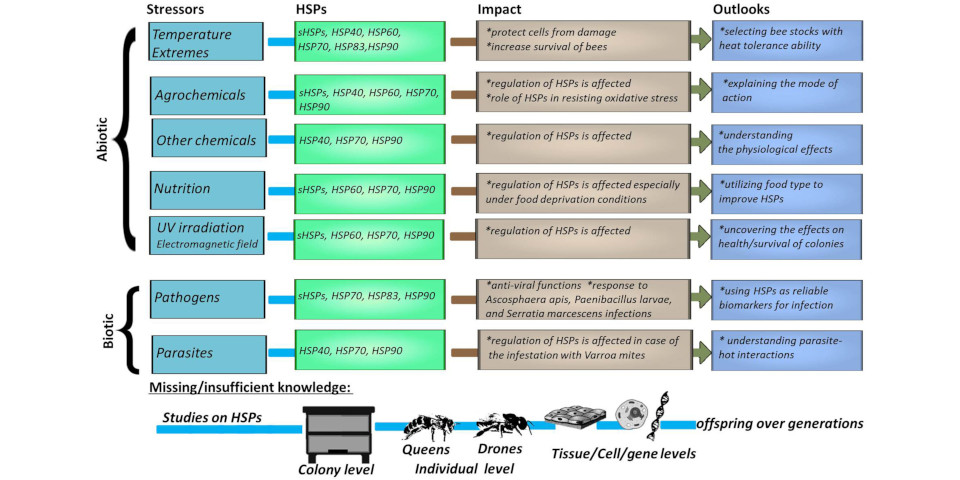Honey bees, Apis mellifera, are the most important managed pollinators worldwide. They are highly impacted by various abiotic and biotic stressors, especially temperature extremes, which can lead to cellular damage and death. The induction of heat shock proteins (HSPs) has been recorded in honey bees as a response to various types of stressors. HSPs are classified into different gene families according to their molecular weights. HSPs play an important role in maintaining cellular protein homeostasis due to their contribution as molecular chaperones or co-chaperones. HSPs in honey bees have complex functions with induction even under normal colony conditions. Previous studies have suggested various functions of HSPs to protect cells from damage under exposure to environmental stressors, pollutants, and pathogens. Surprisingly, HSPs have also been found to play roles in larval development and age-related tasks. The expression of HSPs varies depending on tissue type, developmental stage, age, and stress period. This article reviews studies on HSPs (sHSPs, HSP40, HSP60, HSP70, and HSP90) in honey bees and highlights gaps in the available knowledge. This review is crucial for honey bee research, particularly in the face of climate change challenges.
To download a copy use this link:
https://authors.elsevier.com/a/1iRJs15hXuG8iK










